
by Shaun Chamberlin | Jul 27, 2008 | All Posts, Climate Change, Cultural stories, Favourite posts, Philosophy, Politics
Since my earlier review of Burn Up I have discovered a comment on the film posted yesterday by Jeremy Leggett, one of the few with any media profile to openly discuss the interplay of peak oil and climate change.
In his piece Leggett asks: "Why do the carbon-club lobbyists and contrarians do what they do? What is in their heads as they go about their work? Surely they must see the power of the emerging evidence that the threat is real, and massive? ... I don't have an explanation."
This is a question I have devoted a lot of thought to, and I will venture an answer.
Those who are benefiting most from the current 'business as usual' in the global economy are, by definition, extremely wealthy, and thus very influential. Yet it is these people for whom it may be hardest to acknowledge the reality of climate change and energy depletion.
The reason is that everything and everyone around them tells them that they have made an incredible success of their lives. Their ability to acquire whatever material possessions they desire, their exclusive social groups, their desirable romantic partners and respectful business colleagues - so much in their lives speaks to them of their triumphant prosperity.
Quite apart from the challenge of changing the habits of thought and reasoning that have appeared to serve them so well, what we are asking is that they shift the story they hold of their own life from one of heroic progress and success to one in which they are complicit in the end of civilisation and perhaps even higher life on Earth.
 We should not underestimate the level of commitment and bravery such an internal transformation requires, especially when their peer groups provide them with all the encouragement in the world to resist it. And so we should not be surprised when many instead indulge in desperately contorted logic or straight-out denial (and bring their considerable resources to bear) in the attempt to resist losing the glorious tale of themselves they worked so hard to earn.
Yet despite all this, there are those who have braved the dark night of the soul. Ray Anderson, the founder and chairman of vast multinational corporation Interface Carpets has been telling his story to fellow industrialists:
We should not underestimate the level of commitment and bravery such an internal transformation requires, especially when their peer groups provide them with all the encouragement in the world to resist it. And so we should not be surprised when many instead indulge in desperately contorted logic or straight-out denial (and bring their considerable resources to bear) in the attempt to resist losing the glorious tale of themselves they worked so hard to earn.
Yet despite all this, there are those who have braved the dark night of the soul. Ray Anderson, the founder and chairman of vast multinational corporation Interface Carpets has been telling his story to fellow industrialists:
"One day it dawned on me that the way I'd been running Interface Carpets is the way of the plunderer. Plundering something that is not mine, that belongs to every creature.
I stand convicted by me, myself alone, not by anyone else, as a plunderer of Earth, but not by our civilisation's definition. By our civilisation's definition I'm a captain of industry, in the eyes of many a kind of modern-day hero."
He deserves our respect for embracing this difficult epiphany (he has described the experience as "the point of a spear into my chest"), and if we can better understand the deeply personal challenges facing his fellow plunderers then perhaps we can help them in changing the story of their lives, so that they may come to measure their success very differently, but again become heroes.
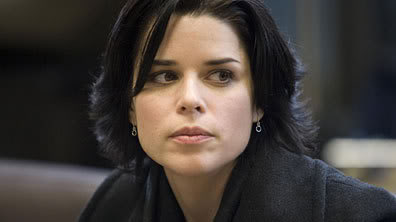
by Shaun Chamberlin | Jul 27, 2008 | All Posts, Climate Change, Cultural stories, Peak Oil, Politics, Reviews and recommendations
I have just watched the BBC's outstanding thriller Burn Up, starring Rupert Penry-Jones, Marc Warren, Bradley Whitford and Neve Campbell (trailer available here).
It is a dramatic account of the intrigue, betrayal, sex and violence surrounding characters in the oil industry, international diplomacy and the environmental movement in the build up to the international conference that will decide on the successor to the Kyoto Protocol. For those who haven't yet seen it, be aware that the discussion below the cut contains spoilers.
Right, so you've seen it now - what did you think? Personally, despite the supposedly 'stellar' cast I thought some of the acting was a bit below-par, but I was shocked in the best possible way by the direction the script took.
Against all my expectations of a prime-time major channel drama this was a fascinating attempt to engage with and dramatise the over-riding tension of our times, between the depletion of the fossil-fuel resources which fuel our globalised way of life, and the growing consequences of the emissions those fuels produce.
It was great to see the scientist in the film stating that we have only 5-10 years to avoid irreversible runaway climate change - to me that is the bottom line - but the section that particularly fascinated me was the ending.
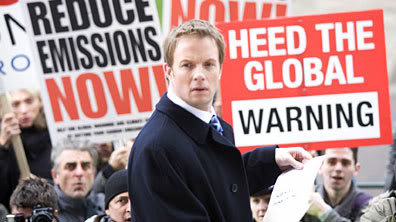 One man alone ends up holding incontrovertible evidence that Saudi oil production is in decline, and so that Peak Oil truly is already in the past, and he faces a dilemma. Does he tell the world, so that we can start work in earnest on the transition to a low-carbon future, or does he keep it to himself, since he knows full well that this information would spread panic throughout the financial markets, plunging us into global economic depression, prompting energy wars and causing suffering throughout the world.
His dilemma represents the very real tension our world faces. Our global economies are dependent on both growing supplies of accessible fossil fuels and a stable climate, so we know that our carbon-intensive way of life will end, one way or another. Yet we have now left it too late for a gentle, gradual transition to a low-carbon economy, so we can see that the crash of our existing systems, when it comes, will be painful.
This creates an instinctive desire to put it off as long as possible, but the longer we persist in our current fuel-wasting, carbon-emitting ways the faster and more vicious the crash will be. We know we really ought to go to the dentist, but maybe we can put it off for just one more year...
The pace of Burn Up seemed to speed up dramatically towards the end, and some friends less immersed in this field told me they had trouble keeping up with it all, but in essence it ended with our hero deciding to leak the information, and the credits rolled to the sound of radio news broadcasts apparently indicating the global economy falling apart as the implications of the reality-check reverberated around the world.
I must confess that when I wrote last month about the thought that economic collapse might be the only remaining solution to global warming, the last thing I expected was to be encountering the idea on prime-time TV so soon.
"The world doesn't have to go to hell Mack, just the economy. You're right, this information will cause the biggest powerdown we've ever seen. But you cut world manufacturing in half you cut CO2 emissions in half. Look it may not be tomorrow, it may not be next week, next month, who knows when but the crash is coming."
The battle of cultural stories continues...
--
ps Since writing this post, I have been pointed at this fascinating interview with the writer of Burn Up.
One man alone ends up holding incontrovertible evidence that Saudi oil production is in decline, and so that Peak Oil truly is already in the past, and he faces a dilemma. Does he tell the world, so that we can start work in earnest on the transition to a low-carbon future, or does he keep it to himself, since he knows full well that this information would spread panic throughout the financial markets, plunging us into global economic depression, prompting energy wars and causing suffering throughout the world.
His dilemma represents the very real tension our world faces. Our global economies are dependent on both growing supplies of accessible fossil fuels and a stable climate, so we know that our carbon-intensive way of life will end, one way or another. Yet we have now left it too late for a gentle, gradual transition to a low-carbon economy, so we can see that the crash of our existing systems, when it comes, will be painful.
This creates an instinctive desire to put it off as long as possible, but the longer we persist in our current fuel-wasting, carbon-emitting ways the faster and more vicious the crash will be. We know we really ought to go to the dentist, but maybe we can put it off for just one more year...
The pace of Burn Up seemed to speed up dramatically towards the end, and some friends less immersed in this field told me they had trouble keeping up with it all, but in essence it ended with our hero deciding to leak the information, and the credits rolled to the sound of radio news broadcasts apparently indicating the global economy falling apart as the implications of the reality-check reverberated around the world.
I must confess that when I wrote last month about the thought that economic collapse might be the only remaining solution to global warming, the last thing I expected was to be encountering the idea on prime-time TV so soon.
"The world doesn't have to go to hell Mack, just the economy. You're right, this information will cause the biggest powerdown we've ever seen. But you cut world manufacturing in half you cut CO2 emissions in half. Look it may not be tomorrow, it may not be next week, next month, who knows when but the crash is coming."
The battle of cultural stories continues...
--
ps Since writing this post, I have been pointed at this fascinating interview with the writer of Burn Up.
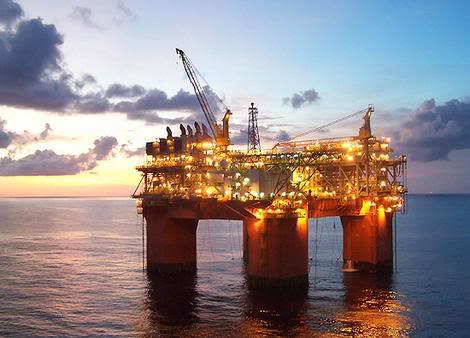
by Shaun Chamberlin | Jun 14, 2008 | All Posts, Climate Change, Favourite posts, Peak Oil, The Transition Timeline, Transition Movement
Lately I seem to be encountering many climate change activists who have a blind spot when it comes to peak oil. At present, Friends of the Earth appear to be particularly prone to this.
They assert that climate change is overwhelmingly urgent (no arguments from me there) and so that the depletion of fossil fuels is largely irrelevant. In fact they argue that it can only be good news, limiting the availability of these dangerous substances which have the potential to destabilise our climate.
But this ignores the reason why humanity is so loathe to wean itself off these fuels in the first place. They are exceptionally potent energy sources which greatly increase our ability to change our human infrastructure and shape the world around us. Energy is perhaps best defined as the ability to do work, and there is much work to be done in the transition to a low-carbon way of life.
Imagine that we simply immediately ceased the extraction of fossil fuels — as the climate change imperative might appear to demand. We would see unbelievable human suffering as the lifeblood of our fossil fuel based societies dried up. Our critical infrastructure for food supply, transportation, heating, irrigation, electricity and so on would all fail catastrophically.
So there is clearly a tension between addressing climate change and addressing peak oil. The earlier we reach fossil fuel supply limits — whether geological or voluntary — the better for climate change, but the more painful the 'peak oil' adaptation problems, and the higher the oil price.
As supply limitations prompt oil price rises, more and more countries (and ultimately individuals) are priced out of the market, leaving only those with enough money able to get the oil their lifestyles demand. Economists call this 'demand destruction', and it is the mechanism the market uses to close the widening gap between supply and demand.
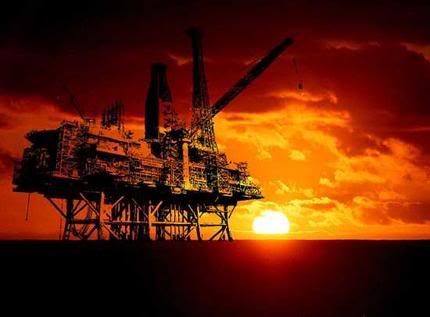 Unfortunately, markets do not distinguish between more and less essential uses of oil — if we in the UK are willing and able to pay more to run our cars than people elsewhere are able to pay to heat their homes or power their hospitals then the limited supply of oil will flow here. Demand destruction can be very cruel or even fatal for those whose demand is 'destroyed'.
In early 2007, with oil prices at less than half their current level, the U.N. wrote:
"Recent oil price increases have had devastating effects on many of the world's poor countries, some of which now spend as much as six times as much on fuel as they do on health. Others spend twice the money on fuel as they do on poverty alleviation. And in still others, the foreign exchange drain from higher oil prices is five times the gain from recent debt relief.
Of the world's 50 poorest countries, 38 are net importers of oil, and 25 import all of their oil requirements."
The more limited the supply the more demand destruction is necessary and the higher the price goes. $140 per barrel means many are simply having to go without altogether. The international oil price, then, is effectively a rough measure of how much of this cruel demand destruction is going on.
The 'supply side dilemma'
The question of whether we should leave some of the available fossil fuels in the ground, then, in reality becomes a question of whether the effects of increased oil demand destruction are more or less desirable than the effects of increased emissions and the resultant climate change.
This is what we might call the 'supply side dilemma' — attempting to choose the lesser of two evils. Not much of a choice some might say, and it is easy to see why there are passionate advocates on both sides of the debate.
But if we campaign on climate change without any acknowledgement of this tension we are easily (and probably correctly) dismissed as naively advocating the suffering and deaths of hundreds of millions of people. Not to mention giving those people a heck of an incentive to harness any fuels they can get their hands on — which may be even more polluting or carbon-intensive than oil.
Unfortunately, markets do not distinguish between more and less essential uses of oil — if we in the UK are willing and able to pay more to run our cars than people elsewhere are able to pay to heat their homes or power their hospitals then the limited supply of oil will flow here. Demand destruction can be very cruel or even fatal for those whose demand is 'destroyed'.
In early 2007, with oil prices at less than half their current level, the U.N. wrote:
"Recent oil price increases have had devastating effects on many of the world's poor countries, some of which now spend as much as six times as much on fuel as they do on health. Others spend twice the money on fuel as they do on poverty alleviation. And in still others, the foreign exchange drain from higher oil prices is five times the gain from recent debt relief.
Of the world's 50 poorest countries, 38 are net importers of oil, and 25 import all of their oil requirements."
The more limited the supply the more demand destruction is necessary and the higher the price goes. $140 per barrel means many are simply having to go without altogether. The international oil price, then, is effectively a rough measure of how much of this cruel demand destruction is going on.
The 'supply side dilemma'
The question of whether we should leave some of the available fossil fuels in the ground, then, in reality becomes a question of whether the effects of increased oil demand destruction are more or less desirable than the effects of increased emissions and the resultant climate change.
This is what we might call the 'supply side dilemma' — attempting to choose the lesser of two evils. Not much of a choice some might say, and it is easy to see why there are passionate advocates on both sides of the debate.
But if we campaign on climate change without any acknowledgement of this tension we are easily (and probably correctly) dismissed as naively advocating the suffering and deaths of hundreds of millions of people. Not to mention giving those people a heck of an incentive to harness any fuels they can get their hands on — which may be even more polluting or carbon-intensive than oil.
 Thankfully though, there are things we can do to ameliorate both climate change and peak oil simultaneously. If we begin to wean our communities off their oil addiction voluntarily then we reduce demand, and thus reduce the need for the more painful varieties of demand destruction. We lessen the desperation for increased oil supplies and so make it easier to consider the necessary step of leaving some of it where it is as a response to climate change. The more ways we can find to reduce demand, the less difficult the global supply side dilemma becomes.
It is these win-win solutions that climate change campaigners should be fighting for, and in fact they might well find that peak oil helps their cause.
Try as we might to ignore peak oil, the stark reality is that the world will be getting by on around half its current level of oil production in 20 years time. And like it or not, some who are unmoved by moral arguments on climate change become rather proactive when they recognise the reality of such a severe impending threat to their way of life.
Activists on peak oil and climate change should be indistinguishable — it really is one problem, and we all need to be working together to ensure that the motivation it generates is channelled in the most constructive directions.
---
Edit: One important economic wrinkle that I missed when I drafted this piece. As oil depletion continues it is taking more workers/resources to produce a given amount of oil (because the easy to extract stuff is gone). In other words, productivity — output per hour worked — is dropping.
In such an environment workers' wages are likely to remain stagnant, or even decline, while the cost of many commodities rises. This is a recipe for reduced growth, or even recession, and workers who cannot afford new homes, cars etc. This in turn reduces demand for oil (since it is used to both produce and run homes, cars etc), which reduces the oil price. In other words, the recipe that oil depletion leads to shortage of supply leads to rising oil prices was too simple. In fact, oil depletion leads to economic contraction and volatile prices which are sometimes very low.
And indeed, these low prices at a time when oil extraction is becoming more expensive are killing much oil production. For more on this see Gail Tverberg's article or interview.
This wrinkle only increases our peak oil problem, and thus makes the climate change challenge even more difficult. And it brings home that — as per my 2009 book — what we face here is an energy/emissions problem, not a money problem, and we need to learn to think in those terms. Otherwise we will sit around waiting for a signal from the markets — to tell us that radical action should have begun many years ago.
Thankfully though, there are things we can do to ameliorate both climate change and peak oil simultaneously. If we begin to wean our communities off their oil addiction voluntarily then we reduce demand, and thus reduce the need for the more painful varieties of demand destruction. We lessen the desperation for increased oil supplies and so make it easier to consider the necessary step of leaving some of it where it is as a response to climate change. The more ways we can find to reduce demand, the less difficult the global supply side dilemma becomes.
It is these win-win solutions that climate change campaigners should be fighting for, and in fact they might well find that peak oil helps their cause.
Try as we might to ignore peak oil, the stark reality is that the world will be getting by on around half its current level of oil production in 20 years time. And like it or not, some who are unmoved by moral arguments on climate change become rather proactive when they recognise the reality of such a severe impending threat to their way of life.
Activists on peak oil and climate change should be indistinguishable — it really is one problem, and we all need to be working together to ensure that the motivation it generates is channelled in the most constructive directions.
---
Edit: One important economic wrinkle that I missed when I drafted this piece. As oil depletion continues it is taking more workers/resources to produce a given amount of oil (because the easy to extract stuff is gone). In other words, productivity — output per hour worked — is dropping.
In such an environment workers' wages are likely to remain stagnant, or even decline, while the cost of many commodities rises. This is a recipe for reduced growth, or even recession, and workers who cannot afford new homes, cars etc. This in turn reduces demand for oil (since it is used to both produce and run homes, cars etc), which reduces the oil price. In other words, the recipe that oil depletion leads to shortage of supply leads to rising oil prices was too simple. In fact, oil depletion leads to economic contraction and volatile prices which are sometimes very low.
And indeed, these low prices at a time when oil extraction is becoming more expensive are killing much oil production. For more on this see Gail Tverberg's article or interview.
This wrinkle only increases our peak oil problem, and thus makes the climate change challenge even more difficult. And it brings home that — as per my 2009 book — what we face here is an energy/emissions problem, not a money problem, and we need to learn to think in those terms. Otherwise we will sit around waiting for a signal from the markets — to tell us that radical action should have begun many years ago.
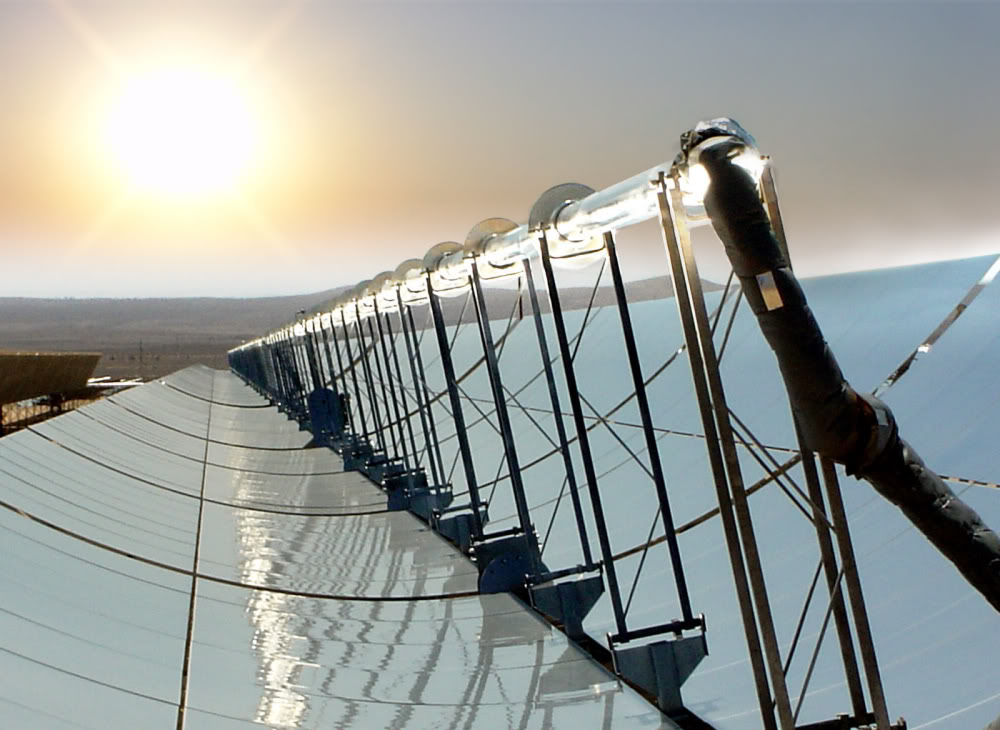
by Shaun Chamberlin | May 19, 2008 | All Posts, Climate Change, Peak Oil, Politics
As I mentioned in my earlier post, last week I met Polly Higgins, The Lazy Environmentalist. She specialises in CSP, and informed me that we may now be seeing serious political movement towards an EU-MENA supergrid bringing CSP-generated electricity to Europe from the...

 We should not underestimate the level of commitment and bravery such an internal transformation requires, especially when their peer groups provide them with all the encouragement in the world to resist it. And so we should not be surprised when many instead indulge in desperately contorted logic or straight-out denial (and bring their considerable resources to bear) in the attempt to resist losing the glorious tale of themselves they worked so hard to earn.
Yet despite all this, there are those who have braved the dark night of the soul. Ray Anderson, the founder and chairman of vast multinational corporation Interface Carpets has been telling his story to fellow industrialists:
We should not underestimate the level of commitment and bravery such an internal transformation requires, especially when their peer groups provide them with all the encouragement in the world to resist it. And so we should not be surprised when many instead indulge in desperately contorted logic or straight-out denial (and bring their considerable resources to bear) in the attempt to resist losing the glorious tale of themselves they worked so hard to earn.
Yet despite all this, there are those who have braved the dark night of the soul. Ray Anderson, the founder and chairman of vast multinational corporation Interface Carpets has been telling his story to fellow industrialists:


 One man alone ends up holding incontrovertible evidence that Saudi oil production is in decline, and so that
One man alone ends up holding incontrovertible evidence that Saudi oil production is in decline, and so that 
 Unfortunately, markets do not distinguish between more and less essential uses of oil — if we in the UK are willing and able to pay more to run our cars than people elsewhere are able to pay to heat their homes or power their hospitals then the limited supply of oil will flow here. Demand destruction can be very cruel or even fatal for those whose demand is 'destroyed'.
In early 2007, with oil prices at less than half their current level, the U.N. wrote:
Unfortunately, markets do not distinguish between more and less essential uses of oil — if we in the UK are willing and able to pay more to run our cars than people elsewhere are able to pay to heat their homes or power their hospitals then the limited supply of oil will flow here. Demand destruction can be very cruel or even fatal for those whose demand is 'destroyed'.
In early 2007, with oil prices at less than half their current level, the U.N. wrote:
 Thankfully though, there are things we can do to ameliorate both climate change and peak oil simultaneously. If we begin to wean our communities off their oil addiction voluntarily then we reduce demand, and thus reduce the need for the more painful varieties of demand destruction. We lessen the desperation for increased oil supplies and so make it easier to consider the necessary step of leaving some of it where it is as a response to climate change. The more ways we can find to reduce demand, the less difficult the global supply side dilemma becomes.
It is these
Thankfully though, there are things we can do to ameliorate both climate change and peak oil simultaneously. If we begin to wean our communities off their oil addiction voluntarily then we reduce demand, and thus reduce the need for the more painful varieties of demand destruction. We lessen the desperation for increased oil supplies and so make it easier to consider the necessary step of leaving some of it where it is as a response to climate change. The more ways we can find to reduce demand, the less difficult the global supply side dilemma becomes.
It is these 
Recent Comments